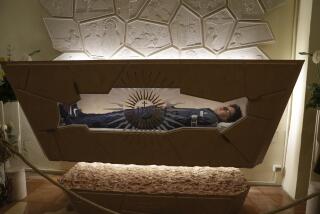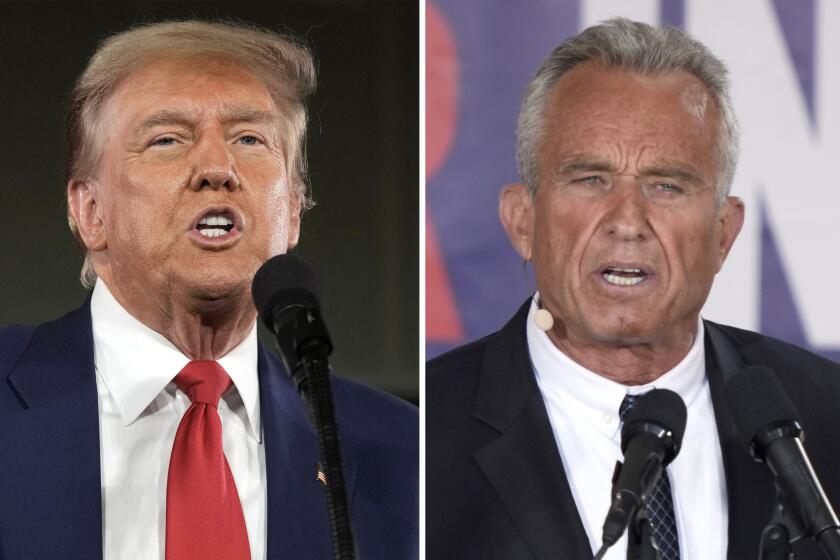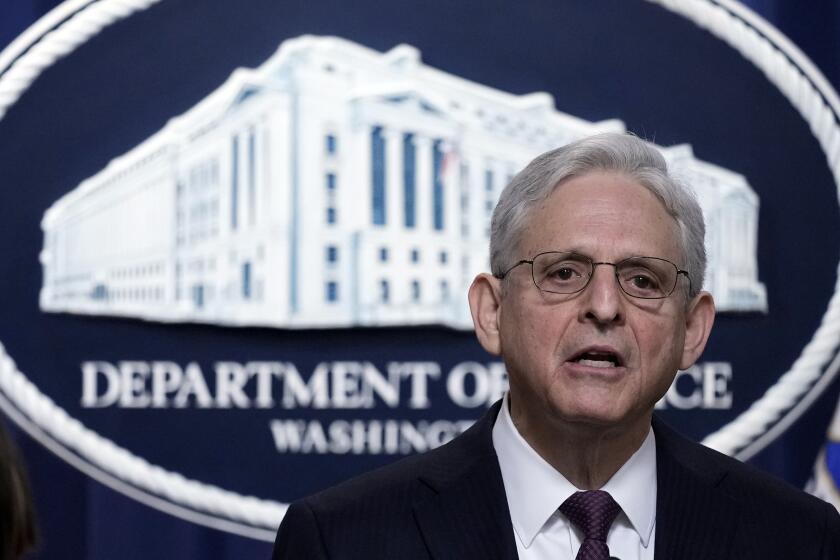Didn’t Oppose Better Security, Ex-Envoy Says
Arthur A. Hartman, who stepped down last week as U.S. ambassador to the Soviet Union, vigorously defended himself Saturday against congressional charges that he blocked efforts to improve security at the U.S. Embassy in Moscow.
Rep. Jim Courter (R-N.J.) told Cable News Network on Saturday that Hartman should be investigated for resisting security improvements. Courter said Hartman came to his office in 1985 to lobby against an amendment to a bill that would have prohibited Soviet personnel from walking inside any part of the embassy compound in Moscow.
“At that time,” Courter said, “Ambassador Hartman had a known KGB colonel as his chauffeur.”
KGB Ties Widely Known
Hartman, speaking in a telephone interview, said that all the Soviet citizens who worked at the embassy, including his own chauffeur, were KGB agents or reported to the KGB.
“No big deal,” Hartman said. “Everybody who has been in Moscow knows that.”
Hartman said he opposed the measure because he believed replacing Soviet employees with “a bunch of young Americans” would not improve security. He said he knew his chauffeur worked for the KGB but kept him on because “he knows how to drive.”
“I couldn’t get anybody who was not KGB,” Hartman said. “If it was an American driver, the car still would not be secure, and he wouldn’t know where he was going.”
Hartman, who was ambassador to Moscow from 1981 until March, said he never held private conversations in his car and usually drove himself.
“I took the position that getting rid of all Soviets and bringing over a bunch of young Americans would not necessarily improve our security, as indeed the current situation shows,” Hartman said.
Hartman noted that certain parts of the embassy were off limits to Soviet employees. As physical changes at the embassy were made, the Soviet work force was reduced, he said.
‘Their Greatest Asset’
“Indeed, it was the Soviets who removed them all,” Hartman said. “So they were removing their greatest asset, according to the congressman.”
The Soviet Union last October withdrew 260 Soviet workers from U.S. diplomatic missions in retaliation for the U.S. expulsion of Soviet diplomats from the United States. The United States had ousted 25 members of the Soviet mission to the United Nations in September after the Soviets lodged spying charges against American journalist Nicholas S. Daniloff.
Courter also accused Hartman of making the “outrageous statement” that working at the embassy often gave Soviet workers increased appreciation of the United States, democracy and liberty. Hartman said he could not recall whether he said those words but noted the sentiment may in fact be true.
Dole Asks for 1984 Cable
On Friday, Senate Minority Leader Bob Dole (R-Kan.) called on Secretary of State George P. Shultz to produce a classified 1984 cable from Hartman that Dole said “may have succeeded in blocking the proposed new and tougher security measures.”
Hartman said his cable addressed a proposal to reduce to fewer than 100 the number of Soviet diplomats in Washington. Such a cutback would have been “justification for breaking relations,” Hartman said.
“I wanted to be sure people in Washington examined it at the policy level and didn’t just treat it as a security issue in the narrow sense,” Hartman said.
He added, however, that he did not oppose a less drastic reduction. The United States now has a ceiling of 225 on Soviet personnel, which Hartman called “acceptable.”
He characterized as “not true” charges that he blocked security improvements.
Says He Backed Programs
“Indeed, the various programs that I instituted show that I was for programs that would enhance and improve security,” he said.
In Saturday’s interview, Hartman also acknowledged that the Soviet government had complained at various times of improper behavior by U.S. Marines, but he insisted that all protests were investigated and anyone involved in “serious incidents” was sent home.
He said non-military personnel at the embassy also exhibited improper behavior from time to time and were disciplined.
‘A Number of Difficulties’
“We certainly had a number of difficulties, not only with Marines but also with other employees,” Hartman said. “I’m sure we acted on all of the (Soviet) complaints and the ones that we discovered ourselves. Anyone who was involved in a serious incident was sent home when I was there.”
Hartman stressed, however, that he was unaware that Marines assigned to guard the embassy were involved in treasonable acts.
More to Read
Start your day right
Sign up for Essential California for news, features and recommendations from the L.A. Times and beyond in your inbox six days a week.
You may occasionally receive promotional content from the Los Angeles Times.







